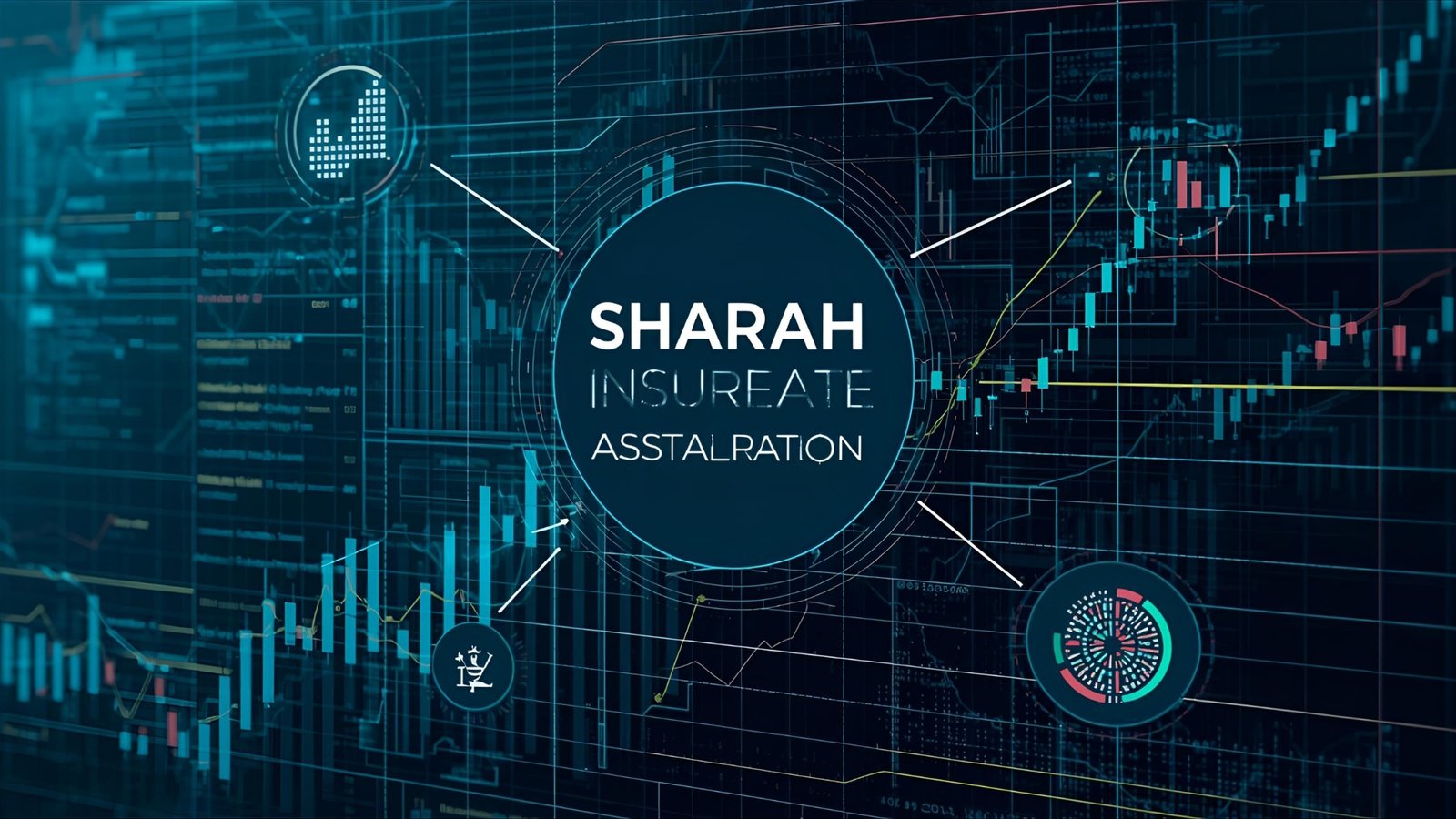Qatar-backed, Shariah-compliant insurer prepares to launch a $3.9 million initial public offering (IPO) on the Pakistan Stock Exchange (PSX). The planned float arrives against the backdrop of a sustained PSX rally that has repeatedly set new records over the past year, buoyed by improving macro indicators, policy continuity, and renewed foreign interest in Pakistani assets. Qatar-Backed Shariah Insurer Eyes : Independent market coverage throughout 2024–2025 has highlighted how Pakistan’s benchmark KSE-100 index moved from strength to strength, with global investors citing low valuations, earnings growth, and IMF-driven stability as core catalysts for the surge.
This prospective listing is also notable because it sits at the intersection of three powerful forces: the rapid formalization of takaful (Shariah-compliant insurance), the deepening of Gulf–Pakistan capital flows, and a reopening domestic IPO window after several years of stop-start activity. If the offering prices successfully and trades with solid liquidity, it could energize a new wave of Islamic finance listings and draw more regional sponsors to consider the PSX for capital formation.
Why this IPO matters now
The deal’s modest size—about $3.9 million—disguises its strategic signaling power. Coming from a Qatar-backed sponsor with Shariah credentials, the float underscores growing investor appetite for ethical, interest-free risk pooling solutions that align with Muslim consumer preferences. In Pakistan—where insurance penetration remains low relative to regional peers—takaful offers a culturally resonant on-ramp to risk protection for households and SMEs.
At the same time, listing in Karachi gives the issuer a public currency for growth: equity to fund digital distribution, micro-takaful innovation, and selective B2B partnerships with banks, fintechs, and telcos. For the PSX, another Islamic finance listing expands sectoral breadth, diversifies investable themes for local funds, and provides an incremental datapoint for foreign investors benchmarking the market’s maturation.
The backdrop: a PSX rally that’s rewriting expectations
To understand the timing, start with the tape. Through 2024 and into 2025, the KSE-100 has notched record highs driven by three reinforcing dynamics: a more credible macro path post-IMF, corporate earnings resilience, and bargain valuations compared with other emerging markets. Global outlets repeatedly flagged Pakistan as a top-performing equity market over this stretch, with the rally extending across cyclicals, banks, energy, and consumer names. That strength has historically catalyzed IPO activity as boards judge public markets receptive to new issuance and price discovery.
A healthier primary market is already visible in the uptick of offers, including Shariah-compliant structures such as REITs and funds that broaden investor choice and signal regulatory comfort with Islamic products. Coverage of 2024’s IPO resurgence at the PSX set the stage; 2025’s pipeline appears to be building on that momentum with more sector variety and more sponsors exploring Karachi instead of waiting for regional windows to reopen.
Takaful: the Shariah-compliant insurance model
Takaful is not traditional indemnity insurance; it is a cooperative risk-sharing framework designed to comply with Shariah. Participants contribute to a risk pool that pays covered claims, while the operator manages this pool for a fee. Investment of contributions avoids riba (interest), gharar (excessive uncertainty), and maysir (speculation)—principles that underpin Islamic finance more broadly. The concept’s historical lineage is often traced to early mutual risk-sharing agreements among traders, adapted for modern regulatory regimes.
In practice, Pakistan’s takaful landscape includes family takaful (life and savings-linked products) and general takaful (non-life lines like motor, health, and property). Growth has accelerated with the rise of banca-takaful, embedded insurance via fintech partners, and a more explicit push from corporates seeking Shariah-compliant employee benefits. A public listing by a Qatar-backed operator could become a reference case for valuation, governance, and disclosure standards in this niche.
Qatar–Pakistan corridors: capital, capability, and credibility
The Gulf–Pakistan relationship, especially involving Qatar, spans energy, labor, and increasingly finance. For takaful, regional sponsors bring capital, actuarial expertise, and technology partnerships that can compress product-development cycles. As the PSX opens its door wider to regional issuers and investors, cross-border listings or dual pathways—raising funds in Pakistan while tapping GCC distribution—can emerge as a pragmatic growth strategy.
A Qatar-backed insurer also carries added brand credibility in the Shariah domain, given the Gulf’s depth of Islamic financial institutions, Shariah boards, and product innovation. That reputational halo matters when convincing Pakistani consumers—many of whom are first-time insurance buyers—to commit long-term savings or pay recurring premiums.
The offer at a glance: size, structure, and likely investors
While final documentation will set specifics, a $3.9 million raise in Pakistan typically implies a free float that suits both retail allocation and participation by local institutions such as Islamic mutual funds, pension funds, and proprietary desks of broker-dealers. On the book-building front, sponsors may choose a floor price with a step-up band, allowing efficient price discovery. Because this is an Islamic insurance operator, demand from Shariah-compliant equity funds could provide a dedicated anchor base, with retail engagement catalyzed by the deal’s modest ticket sizes and thematic appeal.
Over-subscriptions in recent, quality PSX offers suggest that well-messaged growth stories with clear governance often clear comfortably, even in volatile weeks. If the PSX rally remains constructive into next month, the deal’s timing looks astute.
What the issuer needs to communicate to win the book
A durable growth narrative, not just a cyclical trade
Investors have learned to separate structural from cyclical growth. The issuer should articulate a multi-year plan grounded in three engines: distribution scale-up via digital and bancassurance partners; product breadth across motor, health, and micro-takaful; and disciplined underwriting that targets combined ratios below peers.
Shariah governance that is credible and transparent
The market will want visibility into the Shariah board, its review cadence, and how investment screens are enforced to avoid riba, gharar, and maysir exposures. Clarity on wakala (operator fee) arrangements, qard hasan mechanics, and surplus distribution policies helps investors model earnings quality and participant value over time.
Underwriting discipline and risk management
For a takaful operator, the center of gravity is still technical underwriting. The prospectus should detail loss ratios by line, reinsurance treaties (including retakaful partners), claims reserving methodology, and how the company monitors solvency margins under local regulations.
Capital allocation and investment policy
Because the operator invests contributions, the investment mandate—typically Shariah-compliant sukuk, screened equities, and cash—must be explained with duration, credit quality, and liquidity parameters. In a rising-rate or volatile FX environment, conservative asset-liability management can be a competitive advantage.
The market context: investor appetite for Islamic assets
Pakistan’s investor base has grown more sophisticated in its understanding of Islamic finance. The recent pipeline—from Shariah-compliant REITs to Islamic funds—suggests that compliant products can raise capital efficiently when structures are straightforward and disclosures are high-quality. News coverage through 2024–2025 underscores a PSX environment increasingly open to Shariah products, which not only meet religious preferences but also appeal to global ESG-aligned capital seeking ethical finance exposure.
Valuation lenses: how the street may price a takaful operator
Investors often triangulate valuation using a blend of Price-to-Book (P/B), Price-to-Earnings (P/E) on operator profits, and EV/GWP (enterprise value to gross written premium), comparing the issuer to regional takaful peers. However, the unique separation between the risk fund and the operator’s shareholders’ fund in takaful means analysts focus on the wakala fee income, investment returns, and expense discipline as the key earnings drivers. A compelling case can be made if the company demonstrates:
- Premium growth that outpaces the industry average while maintaining underwriting margins.
- Expense ratios are trending down as digital distribution scales.
- Claims management technology that shortens cycle times and reduces leakage.
- A robust retakaful program that smooths earnings volatility in catastrophe or large-loss years.
Demand drivers: why Shariah-compliant insurance is scaling in Pakistan
Untapped penetration
Pakistan’s insurance penetration—both conventional and takaful—remains low, suggesting a long runway as financial inclusion broadens. Tailored micro-takaful for health, crop, and livestock can bring first-time customers into the protection net.
Digital rails and embedded models
Partnerships with fintech wallets, BNPL platforms, and telco super-apps allow bite-sized, usage-based coverage and instant claims adjudication. The region has seen Islamic insurers collaborate with digital payment providers to enable Shariah-compliant financing of premiums—an approach Qatar-based players have piloted at home and can adapt for Pakistan.
Corporate adoption
Mid-size corporates seek Shariah-compliant employee benefits and risk solutions, especially as boards formalize ESG policies. Group health and family takaful can form sticky, recurring revenue anchors.
Risks to watch: what could challenge the thesis
Macro normalization and market sentiment
Even in a bull market, sentiment can swing. A sudden risk-off turn—due to commodity shocks, currency volatility, or policy uncertainty—could impact listing windows and post-listing performance. That said, the PSX’s improved liquidity and depth versus prior years offer better shock absorption.
Competitive intensity and pricing discipline
As more takaful operators scale, pricing pressure may emerge in commoditized lines like motor. The antidote is underwriting analytics, differentiated service, and telematics-driven pricing rather than rate cuts.
Regulatory changes
Any recalibration in capital adequacy, investment limits, or Shariah governance requirements could alter growth and returns. Historically, transparent rule-making has helped Pakistan’s Islamic finance segment expand, but issuers need to show agility in compliance.
How retail investors can evaluate the offer: Qatar-Backed Shariah Insurer Eyes
Read the prospectus with a focus on mechanics
Unlike conventional insurance, takaful uses distinct funds and Shariah-vetted investments. Understand surplus distribution, qard hasan, and wakala fees to see how value accrues between participants and shareholders.
Test the digital promise
If the pitch leans on a digital scale, look for hard metrics: monthly active users from app/portal channels, bancassurance productivity, embedded-insurance conversion rates, and claims cycle KPIs.
Benchmark against listed peers and recent offers
Consider how the proposed valuation stacks against regional takaful comps and recent Islamic listings on the PSX, including Shariah-compliant REITs and funds that priced in 2024–2025. Healthy aftermarket performance in compliant assets is a favorable signal, though sector differences matter.
What success would look like post-listing
If the IPO is allocated cleanly and trades constructively, watch for three markers in the first 12–18 months. First, premium growth sustained by partner channels and targeted geographic expansion. Second, combined ratio improvement from claims analytics and operating leverage. Third, investment income stability within clearly disclosed Shariah screens. Together, these cues would validate the investment case and set up the operator for potential follow-on raises or sukuk issuance to fund expansion.
The bigger picture: PSX as a regional hub for Islamic finance
Every credible Shariah-compliant listing on the PSX nudges the market closer to becoming a recognized node in the GCC–South Asia Islamic finance corridor. The ecosystem benefits: regulators refine frameworks, research coverage deepens, product studios innovate, and capital becomes stickier. A well-received Qatar-backed insurer IPO could embolden more Gulf sponsors—from insurers to asset managers—to consider Pakistan for price discovery, local brand building, and operational scaling.
Timeline and what to watch next
As the company formalizes its timetable, keep an eye on three milestones: publication of the prospectus and Shariah board disclosures; the book-building window with its floor price and band; and final listing and the first full trading week’s liquidity profile. Given how the PSX has handled recent primary issues and the market’s depth during the rally, the microstructure is in decent shape for efficient execution. For day-to-day confirmation of market tone, the PSX’s own data portal and market summary remain the best live dashboards.
Conclusion
A Qatar-backed, Shariah-compliant insurer’s planned $3.9 million IPO is more than a capital raise; it’s a strategic signpost for Pakistan’s Islamic finance journey and a vote of confidence in the PSX’s renaissance. If priced well and supported by credible Shariah governance, prudent underwriting, and transparent investor communication, the listing can widen the investor base for takaful, encourage additional Gulf–Pakistan financial integration, and set a benchmark for future Islamic floats. For investors, the thematic appeal is real—ethical risk pooling, demographic tailwinds, and digital distribution—yet the usual diligence on valuation, governance, and execution discipline still applies. The market has rarely been more receptive; now it’s about delivering on the promise.
FAQs
Q: What exactly is takaful, and how is it different from conventional insurance?
Takaful is a Shariah-compliant system where participants contribute to a shared risk pool managed by an operator. The model emphasizes cooperative risk sharing, avoids interest (riba), excessive uncertainty (gharar), and speculation (maysir), and typically separates the risk fund from the shareholders’ fund. This structure changes how profits, fees, and surpluses are recognized compared with conventional insurers.
Q: Why list on the PSX now?
The PSX has experienced a robust, multi-quarter rally supported by improving macro signals and attractive valuations, which have historically reopened the window for IPOs. As investors search for new themes, Islamic finance listings can attract both conventional and Shariah-mandated capital.
Q: Who is likely to buy this IPO?
Expect interest from local Islamic mutual funds, pension funds, and retail investors who favor Shariah-compliant stories with transparent governance. Depending on the final structure, foreign frontier-EM funds tracking the PSX may also participate.
Q: What are the key risks to the investment thesis?
Macro volatility, competitive pricing pressure in commoditized lines, and potential regulatory changes are headline risks. The company’s retakaful arrangements, claims management, and capital adequacy disclosures will be crucial for assessing resilience.
Q: How can investors track market conditions in the listing?
The PSX’s data portal and market summary pages provide live price action, breadth metrics, and announcement feeds that help gauge sentiment during book-building and early trading. Independent financial media tracking Pakistan’s rally also offers useful context.



